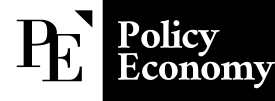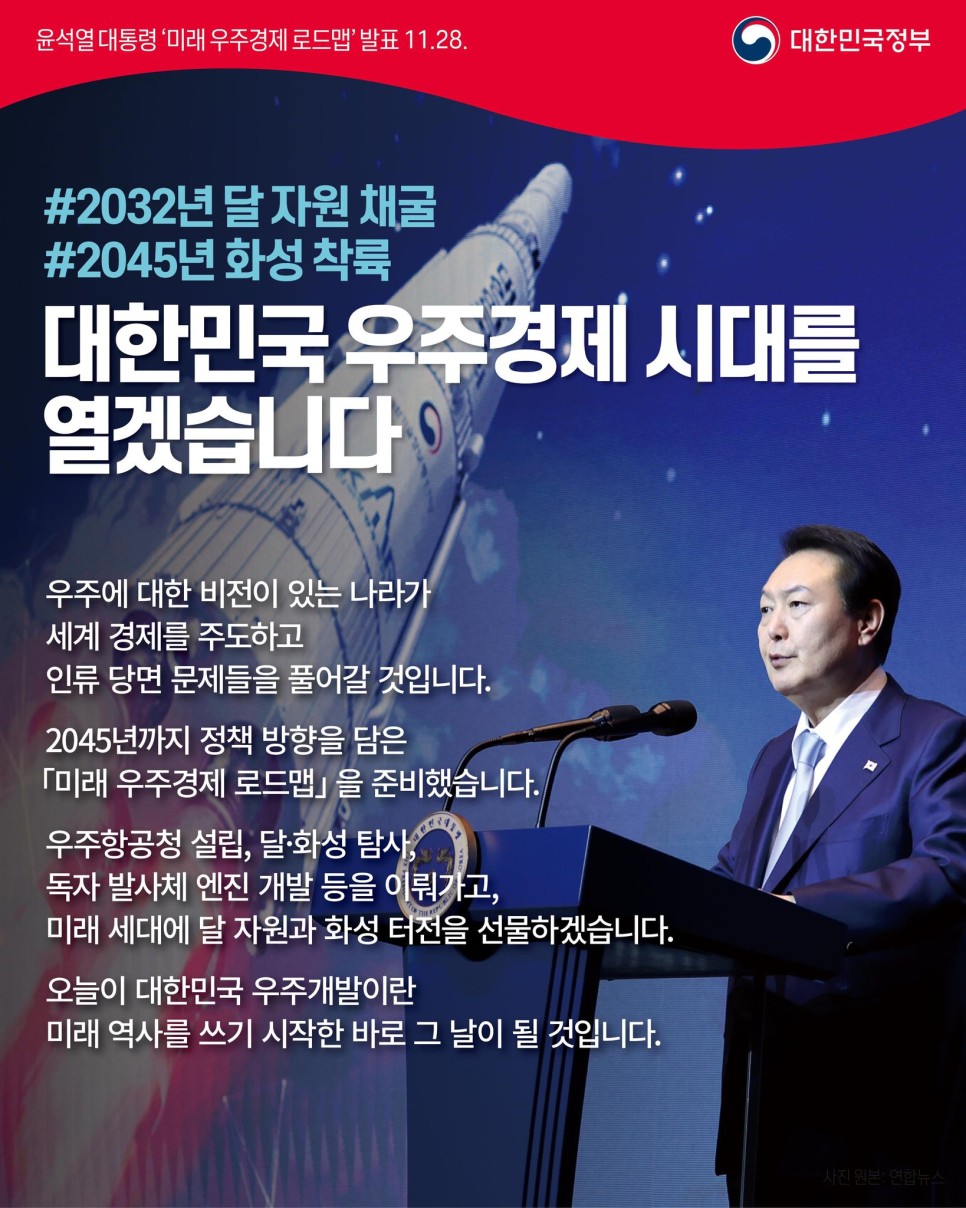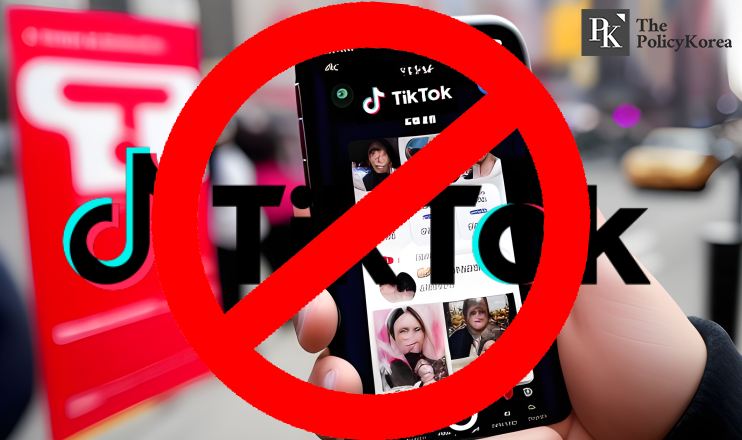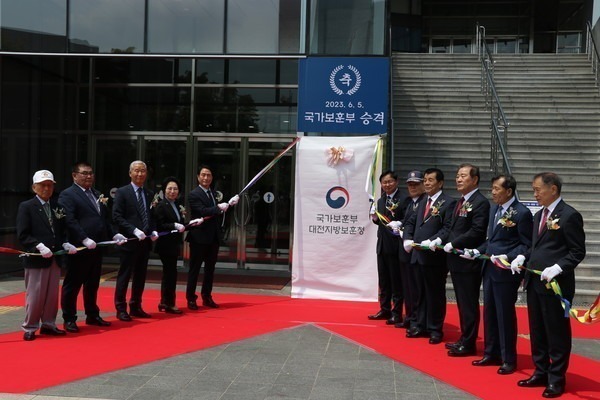[동아시아포럼] 한-미-일 3국 집단안보체제 유지 가능성 낮아
3국 간 집단안보체제 구상의 수명이 길지 않을 것이란 우려 나와 각국 정상 퇴임 시 장기 지속성 담보하기 어려워 미국이 빠질 경우 한-일 간 군사 협력 유지도 문제
[동아시아포럼]은 EAST ASIA FORUM에서 전하는 동아시아 정책 동향을 담았습니다. EAST ASIA FORUM은 오스트레일리아 국립대학교(Australia National University) 크로퍼드 공공정책대학(Crawford School of Public Policy) 산하의 공공정책과 관련된 정치, 경제, 비즈니스, 법률, 안보, 국제관계에 대한 연구·분석 플랫폼입니다. 저희 폴리시코리아(The Policy Korea)와 영어 원문 공개 조건으로 콘텐츠 제휴가 진행 중입니다.
지난 1956년 존 F. 케네디(John F. Kennedy) 당시 미국 상원의원은 ‘용기의 프로파일(Profiles in Courage)’이라는 저서를 통해 미국 주요 정치인들의 사례를 연구한 결과를 내놓은 바 있다. 해당 연구집은 즉각 베스트셀러가 됐고, 케네디 당시 상원의원은 퓰리쳐 상(Pulitzer Prize)을 수여 받았다.
정가 관계자들은 수상 실적과 더불어 저서에 담긴 케네디 의원의 시야에서 국익을 정치적 편의주의보다 우선하는 모습을 엿볼 수 있었던 것이 대통령의 자격을 갖춘 인물이라는 세간의 평가를 이끌어내는 데 결정적인 역할을 했으며 의원의 지적인 역량을 홍보하는 데도 큰 역할을 했다고 평가한다.
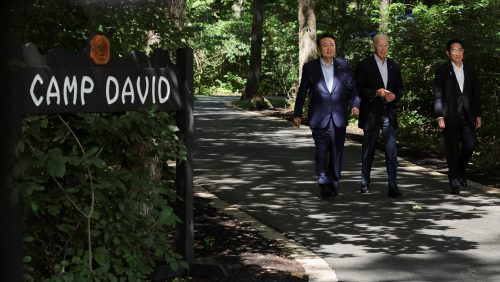
최근 한·일 양국 지도자들이 존 F. 케네디 도서관 재단에서 준비한 ‘용기의 프로파일’ 국제 부분 수상자로 등재될 것으로 알려진 가운데, 양국 지도자들의 정치적 화해 노력이 장기 지속가능한 것인지에 대한 회의적인 시각도 함께 대두된다.
지난 8월 조 바이든 미국 대통령이 양국 정상을 캠프 데이비드(Camp David)에 초청해 이뤄진 3국 정상 간의 안보 관련 합의가 북대서양조약기구(NATO) 수준의 집단안보체제로 격상되기 전에 각국 정상들의 임기가 지나고 나면 소리소문없이 사라질 것이라는 분석이다.
윤석열 대통령의 일본 화해 정책과 국내의 반대 세력
먼저 한국 윤석열 대통령이 도전 중인 일본과의 화해 정책에 대한 국내의 강한 반대 기류가 문제로 지적된다. 미 케네디 도서관 재단은 한·일 정상들의 화해 정책이 ‘용기있는 결단을 바탕으로 그간 양국 간의 협력을 방해했던 민감한 역사적 문제에 공동 대응했다’며 ‘양국 및 3국 간의 연이은 정상회담을 바탕으로 미국의 핵심 동맹국들이 집단안보체제를 구축할 수 있는 길을 열었다’고 평한 반면, 전문가들은 ‘민감한 역사적 문제’가 간단치 않다는 점에 주목한다.
일본의 식민 지배 시절 자행된 각종 문제들이 한국인들 마음속 깊숙하게 남아있고 특히 전쟁 범죄, 강제 징용, 위안부 문제는 여전히 속 시원하게 해결되지 못한 상태다. 반면 일본 국민들은 세계 2차대전 기간 전쟁 범죄의 사실관계에 의문을 제기하고 있는 데다, 과거사 문제의 범위를 축소하는 데 익숙해져 있다. 또한 일본 국민들에게 전쟁 범죄에 따른 죄책감이 깊이 있게 공유되고 있지 않은 점도 한·일 양국이 당면한 ‘민감한 역사적 문제’의 일부분이다.
중국 위협에 한·일 간 복잡한 역사적 문제는 후순위로 밀려나
그러나 최근 중국의 성장 및 압박이 가시화 되면서 한·일 양국은 역사적 문제를 뒤로하고 미국과 공동 대응을 선택할 수밖에 없는 현실에 직면한 상태다. 다만 중국의 위협에 대한 긴박한 외교적 대응이 필요하다는 인식에도 불구하고, 일본과의 관계 개선이 한국 정치권에 주는 파장은 간단치 않다. 하버드대학교 아시아센터의 이성현 방문 연구원은 윤석열 대통령의 독자노선이 한·일 협력이라는 역사적인 장(場)을 열게 된 것과 더불어 한-미-일 3국 공조 관계에서 윤 대통령의 정치적인 경험 부족을 그대로 노출했다고 평했다.
윤 대통령의 정치적인 선택이 사실 워싱턴 정가에서 오랜 기간 요구해 왔던 ‘3국 공조’라는 사실을 지적하며 3국 공조를 통한 군사 전략적 시너지를 얻은 반면, 그간 미·일과 협력을 방해했던 국내 여론을 등지는 선택이었다는 설명이다.
지난 8월 캠프 데이비드의 3국 정상회담에서 발표된 공동 성명에 따르면 3국 간의 군사 협력 관계는 집단안보체제를 약속하는 NATO의 규정 5조에 준하는 것으로, 국가 안보 위기가 발생했을 경우 직접적인 군사 협력까지는 미치지 못하더라도 3국이 서로 ‘의견을 구할 수 있다(Consult)’고 지정된 바 있다.
공동 성명이 제도화 될 경우 3국은 군사적, 비군사적 외부 압력에 대해 공동 대응하는 것을 넘어 대통령, 장관급 이상의 고위직 회담을 연례화해 세부적인 전략적 조율을 이뤄낼 수 있다. 특히 북한의 미사일 발사, 중국의 사이버 간첩 행위에 수반된 군사적 상호운용 관계에 대해 동북아시아를 넘어 타지역에까지 협력 관계를 확대할 수 있게 된다.
각 정상들의 임기 이후에도 계속될지 담보하기는 어려워
그러나 캠프 데이비드에서 이뤄진 각종 결정들이 3국 간의 공동 협정이라기보다는 한-일, 한-미, 미-일 간의 국가 간 약속이었다는 점은 우려의 대상이다. 3국의 군사 안보 관련 자원을 함께 합쳐 중국의 위협에 공동 대응하겠다는 전략이 가시화될 경우, 워싱턴의 직접적인 관여 없이도 한-일 간의 협의에 따라 군사적인 결정이 가능해진다.
이와 더불어 공동 성명이 3국 정상들의 임기에 크게 영향을 받을 수 있다는 점도 함께 지적된다. 먼저 한국은 ‘제왕적 대통령’이라는 표현대로 대통령에게는 군사·외교적으로 자신의 의지를 관철할 수 있는 많은 선택권이 주어진다. 5년 임기가 끝나고 난 다음에도 같은 정책적 결정이 계속 유지될 수 있을지는 다음 대통령의 결정이다. 이에 이 연구원은 2027년으로 예정된 대통령 선거에서 더불어민주당의 후보가 당선될 시, 민주당이 그간 반일 정책을 취해왔던 점을 미뤄볼 때 윤 대통령의 이번 결정이 대부분 번복될 수 있을 것이고 우려했다.
자민당이 주도하는 국회 권력에 따라갈 수밖에 없는 일본 총리의 경우 대형 정책 변화를 위해서는 당 내부 및 관료 사회로부터 지지 세력을 형성해야 한다. 미국의 경우도 도널드 트럼프 전 대통령이 2024년 공화당 대통령 후보 지명전에서 승리를 거둘 것으로 예상되는 가운데, 바이든 대통령의 지지도는 지난 1963년 이래 현직 대통령 중 가장 낮은 상태다. 이에 트럼프 대통령으로 정권이 교체되면 그간 ‘미국 우선주의(America First)’를 내세운 외교적 성향상 미국 정부가 추진해 온 3국 공동안보체제를 파기할 수도 있다는 지적도 따라 나온다.
South Korea’s maverick president isn’t the only political threat to Northeast Asian trilateralism
In 1956, the then US Senator John F Kennedy published Profiles in Courage, a series of case studies on statesmanship of US politicians. Apart from becoming an instant bestseller, the book served its intended purpose of establishing Kennedy’s reputation as an intellectual, winning him a Pulitzer Prize, and carrying the implicit message that Kennedy’s presidency would be marked by similar feats of putting the national good over political expediency.
Not a bad legacy for a book whose drafting, to put it diplomatically, was a group effort — a fact which itself serves as a reminder that myth-making and leadership tend to go hand in hand in the making of great statesmen.
As the John F Kennedy Presidential Library Foundation prepares to award South Korean President Yoon Suk-yeol and Japanese Prime Minister Fumio Kishida with an International Profile in Courage Award, it’s worthwhile to consider whether the long-term payoffs of the two men’s efforts to break through political barriers between their countries will live up to the euphoric tone of some of the commentary that followed the landmark Camp David summit with US President Joe Biden in August.
As the Library Foundation says, the two leaders deserve recognition for ‘courageously work[ing] to address sensitive historical issues that have prevented close cooperation’ between their two countries. Their work culminated in a series of bilateral meetings and a summit with Biden at Camp David that ‘affirmed the progress made between two of America’s closest allies and set the stage for increasing trilateral cooperation with the United States’.
The problems that lie behind the euphemism of ‘historical issues’ aren’t trivial. They go to many South Koreans’ deep sense of injustice over the unaddressed legacies of Japan’s colonial and wartime conduct — including war crimes, forced labour and sexual slavery. In Japan, that legacy is contested, to say the least, and the minimisation of the scale of Japan’s past wrongdoings, or at least the downplaying of contemporary Japanese society’s culpability for them, is a first-order cause among conservatives.
It’s a mark of how deep the security concerns about China run in both countries that these history wars can be set aside for closer bilateral ties as well as stronger defence relationships with their common ally, the United States.
Despite that shared sense of the urgency of addressing the China challenge, the political risks in this are far from evenly distributed. As Lee Seong-hyon explains in this week’s lead article, the idiosyncratic politics of South Korean president Yoon Suk-yeol have unlocked the possibility for Tokyo and Seoul to put the history wars to one side — while also exposing Yoon as the political weak link in the new trilateral.
Yoon, a former prosecutor with little experience in party politics, ‘has bucked the trend of popular sentiment in his pursuit of trilateral synergy’, an approach ‘which has been long desired by Washington’ but which has been frustrated by the fraught domestic politics of South Korea’s relationships with Japan and the United States.
The August summit at Camp David produced a joint statement that, while ‘stopp[ing] shy of solidifying a formal military alliance’, nevertheless ‘resonated with the spirit embodied in NATO’s Article 5’ by enshrining a commitment for the parties to ‘consult’ in a crisis.
If institutionalised over the long term, the three sides will be better equipped to detect and respond to military and non-conventional security threats and meet annually at top levels of government to further refine their trilateral arrangements. This should allow the United States, South Korea and Japan more transparency about North Korean missile tests, Chinese cyber espionage and their own militaries’ interoperability — not just in Northeast Asia but further afield.
To be sure, many of the Camp David mechanisms and schemes exist in some form at a bilateral level. The hope is that pooling the resources of the United States, South Korea and Japan will improve the security environment for all three while elevating a trilateral framework that does not require Washington’s direct involvement at every step of the way.
Yet it’s hard to escape the sense that the reinvigorated trilateral relationship is hostage to the relationships between domestic political institutions and foreign policy outcomes.
The pathways to power that the South Korean system incentivises, combined with its so-called ‘imperial presidency’, give presidents wide leeway to reorient policy at their whim — unlike Japan’s LDP-dominated parliamentary system, where prime ministers have to climb the greasy pole of party politics and have to work comparatively hard to build party and bureaucratic consensus around major policy shifts.
By the same token, South Korean presidents are vulnerable to seeing their policy agendas disavowed by a successor once their constitutionally-limited single five-year term is up. As Lee warns, ‘[w]hether [Yoon’s] policies endure after his tenure is questionable, especially if a successor from the traditionally more anti-Japanese progressive side of politics emerges victorious’ in the next presidential election in 2027.
In the United States, Donald Trump is favoured to win the Republican Party’s presidential primary in 2024, and with Joe Biden registering the lowest approval ratings of any president seeking re-election since Jimmy Carter, the ‘Spirit of Camp David’ may be fleeting.
For proponents of tighter strategic relations between this Northeast Asian triad, the fraught politics of national security in South Korea might be the least of their worries, given the damage ‘America First’ Trumpism would do to the global credibility that ultimately underpins any efforts to multilateralise the ‘hub and spoke’ US alliance structure.
원문의 저자는 호주국립대학교(Australia National University) 크로포드 공공정책 대학원(Crawford School of Public Policy)의 아시아태평양 지역(College of Asia and the Pacific) 담당 편집국(Editorial Board)입니다.
